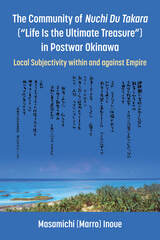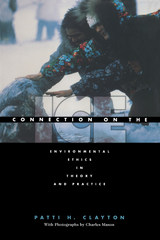

“Boys are emotionally illiterate and don’t want intimate friendships.” In this empirically grounded challenge to our stereotypes about boys and men, Niobe Way reveals the intense intimacy among teenage boys especially during early and middle adolescence. Boys not only share their deepest secrets and feelings with their closest male friends, they claim that without them they would go “wacko.” Yet as boys become men, they become distrustful, lose these friendships, and feel isolated and alone.
Drawing from hundreds of interviews conducted throughout adolescence with black, Latino, white, and Asian American boys, Deep Secrets reveals the ways in which we have been telling ourselves a false story about boys, friendships, and human nature. Boys’ descriptions of their male friendships sound more like “something out of Love Story than Lord of the Flies.” Yet in late adolescence, boys feel they have to “man up” by becoming stoic and independent. Vulnerable emotions and intimate friendships are for girls and gay men. “No homo” becomes their mantra.
These findings are alarming, given what we know about links between friendships and health, and even longevity. Rather than a “boy crisis,” Way argues that boys are experiencing a “crisis of connection” because they live in a culture where human needs and capacities are given a sex (female) and a sexuality (gay), and thus discouraged for those who are neither. Way argues that the solution lies with exposing the inaccuracies of our gender stereotypes and fostering these critical relationships and fundamental human skills.

While often viewed and studied separately, drawings and prints have always been closely intertwined. They facilitated and generated the production of one another, and in some instances, clear distinctions between the two dissolved. Many artists created drawings specifically intended for translation into print, and an even greater number used prints as a training tool, copying from them to hone drawing skills. This reciprocal relationship goes even deeper, however, as innovative artists made fascinating hybrid works that blurred the boundaries between the two media, pushing against modern definitions and hierarchies.
Lines of Connection charts these historical and geographical continuities for the first time by bringing together works on paper of superb quality, foregrounding issues of artistic process and collaboration, technical innovation, and creative ingenuity. Featuring over 170 prints and drawings by such artists as Albrecht Dürer, Parmigianino, Hendrick Goltzius, Maria Sibylla Merian, Rembrandt van Rijn, and William Blake, this catalogue is a rich narrative introduction to the compelling, yet understudied, relationship between drawing and printmaking.
This volume is published to accompany an exhibition on view at The Art Institute of Chicago from March 15 to June 1, 2025 and at the J. Paul Getty Museum at the Getty Center from July 1 to September 14, 2025.

In this collection of compelling and practical essays, Emmy Award–winning broadcaster, newspaper columnist, and motivational speaker Steve Adubato shares concrete tips and tools that will help you connect more effectively at work, at home, under pressure, in leadership roles, and in high-tech environments. From avoiding unnecessary arguments with your spouse to coaching a valuable, yet difficult employee, Adubato’s essays delve into the key factors that motivate people to act and respond the way that they do.
You will find answers to some of the most common questions about public speaking as well as advice on overcoming its anxieties. Whether the forum is a PTA meeting or a large professional function, essays explore topics such as:
- Why even practiced speakers sometimes experience stage fright
- How to keep your audience awake and interested in what you are saying
You will learn essential skills for interacting in the workplace, including:
- How to negotiate a good deal and still be honest and straight
- How to keep team projects from falling apart
- How to conduct yourself in confrontational situations, such as receiving a public insult
Drawing on examples set by public figures, including Bill Clinton, Rudy Giuliani, Mario Cuomo, Martha Stewart, Jack Welch, Joe Torre, and many others, Adubato addresses the unique communication challenges that those in leadership positions face. Essays examine:
· What ordinary people can learn from leaders in high-profile positions
· Why so many leaders have difficulty taking responsibility and apologizing for their actions
As technology continues to provide opportunities for quicker and more visual communication, Adubato also lets you know when hi-tech bells and whistles get in the way of making a more personal and human connection. For instance,
· Why do we hide behind e-mail messages when we have something very difficult to say?
· How does communication deteriorate when cell phones and e-mail are competing for our attention?
Finally, Adubato reminds us that communicating at home is no less important or any less difficult than communicating in public or at work. From contemporary challenges to age-old questions, essays explore:
· How you can more effectively talk with your kids about war and terrorism
· What forms of persuasion are more effective than nagging
Filled with timely examples and practical suggestions, Make the Connection is a must-read for everyone looking to improve their professional and personal relationships.

The Making of China’s Post Office traces the origins and early development of the country’s modern postal system. Sweeping in perspective, it goes beyond the bounds of institutional history to explore the political maneuverings, economic imperatives, and societal pressures both inhibiting and driving forward postal development. Although its prime mover was Robert Hart, Inspector General of the Chinese Maritime Customs Service, the wider cast of characters includes foreign and native staff, Qing officials, local administrations, commercial interests, and foreign governments.
Drawing extensively on archival material from the Second Historical Archives of China in Nanjing, the Tianjin Municipal Archives, and the Archive of Queen’s University Belfast, Weipin Tsai contextualizes the making of the post office within the country’s long and contested path of modernization, bringing Chinese voices to the fore. Tsai illustrates the extent to which local agency shaped the design and development of the service as it expanded from experimental coastal operation into China’s interior and on to its border periphery, the first nationwide modernization project to directly impact people’s daily lives. Ultimately, the grand spatial reach of the Post Office carried significant symbolic meaning in relation to sovereignty for the Qing government and for later Republican administrations.
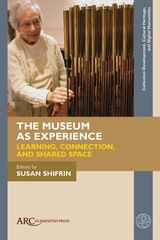

Using a framework of online connection and disconnection, The Paradox of Connection examines how journalists’ practices are formed, negotiated, and maintained in dynamic social media environments. The interactions of journalists with the technological, social, and cultural features of online and social media environments have shaped new values and competencies--and the combination of these factors influence online work practices. Merging case studies with analysis, the authors show how the tactics of online connection and disconnection interact with the complex realities of working in today’s media environments. The result is an insightful portrait of fast-changing journalistic practices and their implications for both audiences and professional identities and norms.
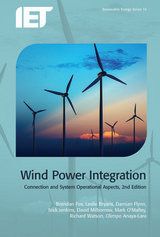
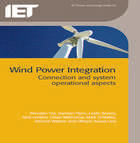
READERS
Browse our collection.
PUBLISHERS
See BiblioVault's publisher services.
STUDENT SERVICES
Files for college accessibility offices.
UChicago Accessibility Resources
home | accessibility | search | about | contact us
BiblioVault ® 2001 - 2025
The University of Chicago Press


